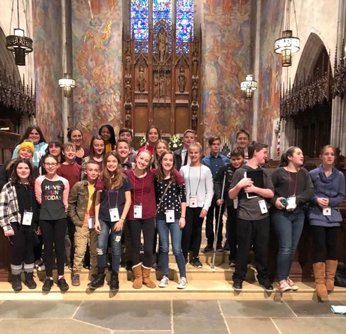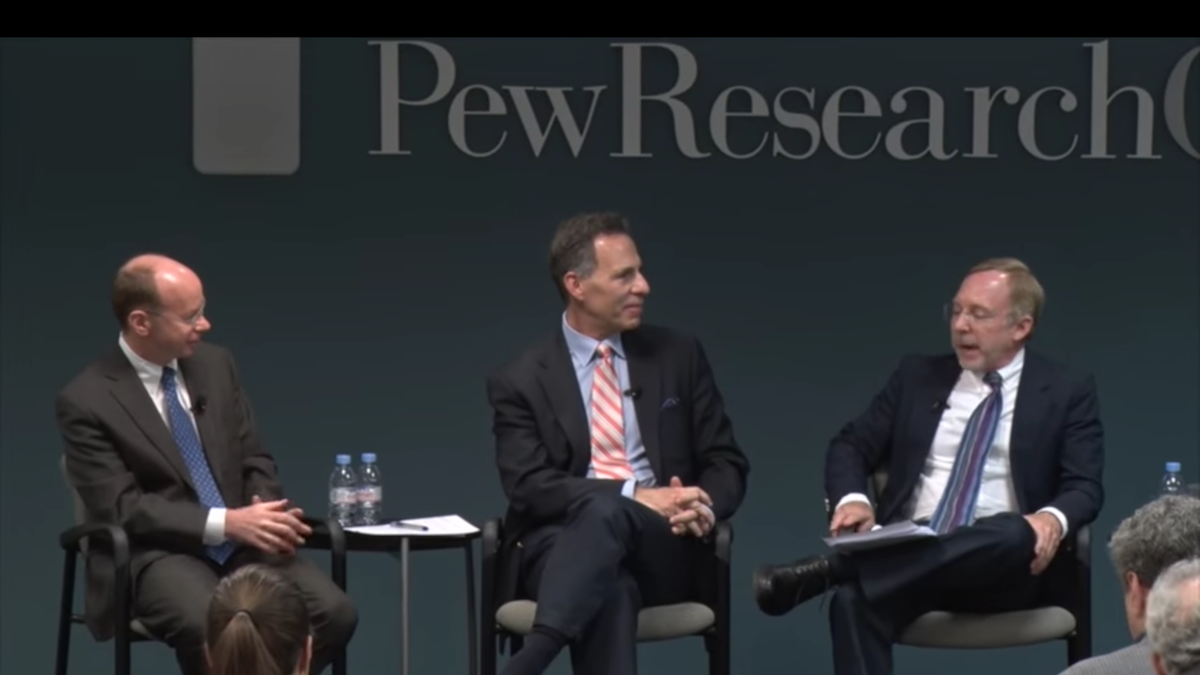
-
HOME
-
WHAT IS STANDOur Mission Our Values Our Help Contact
-
WHAT WE FIGHT FORReligious Freedom Religious Literacy Equality & Human Rights Inclusion & Respect Free Speech Responsible Journalism Corporate Accountability
-
RESOURCESExpert Studies Landmark Decisions White Papers FAQs David Miscavige Religious Freedom Resource Center Freedom of Religion & Human Rights Topic Index Priest-Penitent Privilege Islamophobia
-
HATE MONITORBiased Media Propagandists Hatemongers False Experts Hate Monitor Blog
-
NEWSROOMNews Media Watch Videos Blog
-
TAKE ACTIONCombat Hate & Discrimination Champion Freedom of Religion Demand Accountability
Religion in Schools: Teaching Isn’t Preaching
Having graduated from high school many summers past, I wasn’t personally present in Caleigh Wood’s 11th grade history class in Maryland’s La Plata High School. I wasn’t, therefore, privy to the teachings she and her peers received on the subject of “The Muslim World.” I have, however, read various reports and articles that have been written ever since the girl and her parents sued the Charles County, Maryland, school system, claiming that the history lesson in question violated her Christian beliefs. According to Wood’s attorney (president of a national Christian nonprofit law firm), the material in the lesson was clearly endorsing Islam, denigrating Christianity, and amounted to “forced speech of a young Christian girl.”

Wood and her classmates were asked to complete an assignment on the growth of Islam, its beliefs and practices and the connections between Islam, Judaism and Christianity. It included a portion of an Islamic declaration of faith. According to a federal appeals court judgment mid-February 2019, the task was purely “factual” and school officials in Southern Maryland had not violated Wood’s First Amendment rights in that the curriculum did not endorse or advocate any particular religion “and did not compel Wood to profess any belief.” One of the attorneys went on to state that “academic freedom would not long survive in an environment in which courts micromanage school curricula and parse singular statements made by teachers.”
So why did Caleigh and her parents object? While I fully respect anyone’s right to practice the faith of their choosing (or none, as the case may be), I also feel it’s extremely important to be taught religions other than one’s own. I have personal experience with why one should: I went to Catholic school and, growing up, I was almost completely oblivious to the fact that any other faiths existed! This would seem almost impossible today, but these were pre-Internet times and I was being educated in a “theological bubble.” The school subject of “Religion” was definitely a part of our curriculum but it consisted of studying the Bible (mainly the New Testament) and occasionally receiving a seminar from a Nun-Priest duo!
Imagine my surprise when, at the age of 15, I happened upon a young man walking down the quiet street of my youth dressed in an orange robe with a rope around his midriff and an intriguing pony tail atop his shaved head. He gently engaged in conversation with me and handed me a book about Krishna. Although I never went on to join the Hare Krishna movement, I was touched and refreshed by this religion I’d never previously heard of.
“Religion is an integral part of history. You can’t ignore it.”
Many years later, I was discussing religion with a friend of mine. He told me that, at a young age, his mother introduced him to a wide array of faiths, taking him along to various venues of worship and allowing him to “dabble” at each one so as to obtain a broad religious spectrum. I think that’s a very good idea. Without knowledge, one is unable to judge or make decisions. Being able to observe from an objective viewpoint is the essence of learning and, in the case of religion, it enables us to better understand our fellow man. After all, isn’t that what going to school is all about, in a nutshell? Isn’t that what Caleigh Wood’s school was trying to do, as corroborated by the federal appeals court’s adjudication? “We don’t teach religion. What we are teaching is world history,” Charles County Schools Superintendent Kimberly A. Hill pointed out after the ruling.
“Religion is an integral part of history. You can’t ignore it,” said attorney Andrew Scott, representing Charles County school officials at the U.S. Court of Appeals. “The key is to teach it from a secular perspective—and not to proselytize.”

One of the problems in this particular case is the stigma around the Muslim religion and their followers which has been allowed to mushroom in the United States. Charles C. Haynes, founding director of Religious Freedom Center at the Newseum in Washington, said the association of Islam with terrorism and the subsequent rise of Islamophobia has created a particular “fear and suspicion of how Islam is being treated in public schools.”
Tolerance of one’s fellow man, including his race, his nationality and his creed, is an essential part of everyday life. We all live in the same world and, as such, do mingle and run into one another in all kinds of circumstances, sometimes unexpectedly—just like my encounter with the Hare Krishna member. The Scientology religion, for one, acknowledges and acts on that diversity: in order to become a minister of this church, one must study all world faiths.
Isn’t that the best way not to judge a book by its cover?









